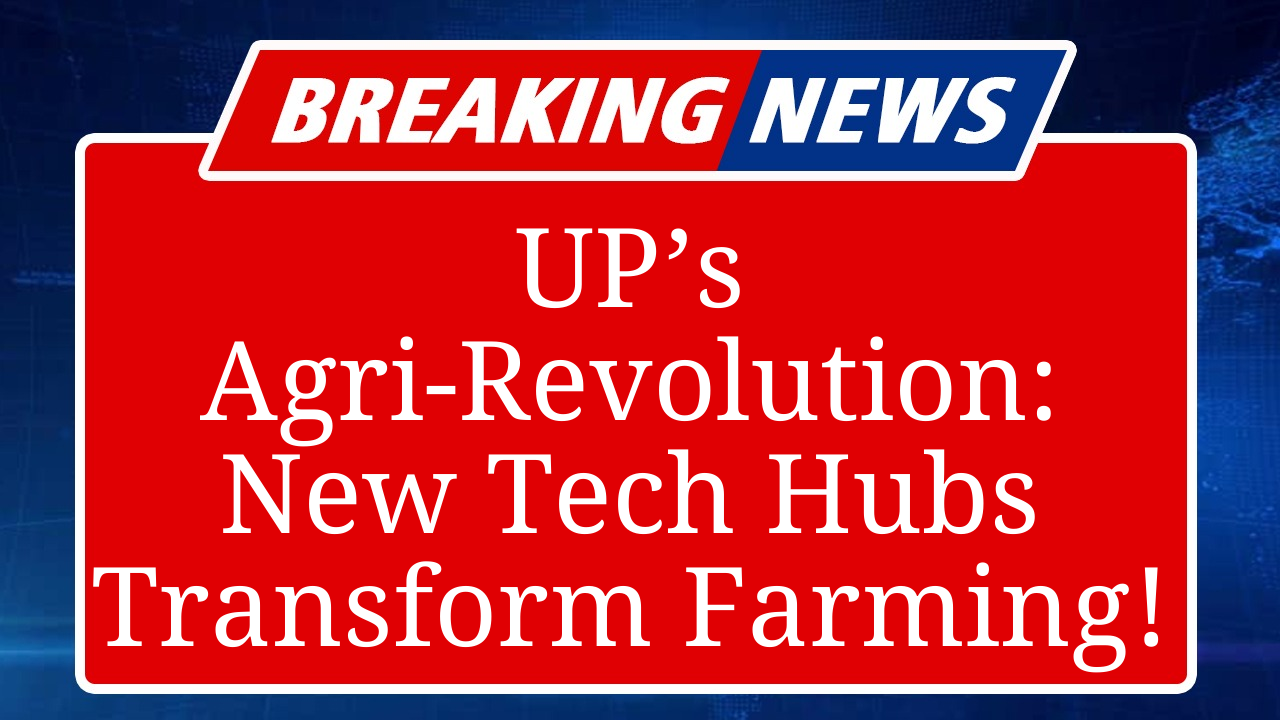“Uttar Pradesh is revolutionizing agriculture with new research centers focused on sustainable farming, advanced biotech, and climate-resilient crops. These hubs aim to boost productivity, empower farmers, and address food security challenges through cutting-edge technologies and collaborations.”
Uttar Pradesh Pioneers Agricultural Transformation with New Research Hubs
In a transformative move for Indian agriculture, Uttar Pradesh (UP) has launched a series of advanced agricultural research centers to drive innovation and sustainability in farming. These state-backed initiatives, established in 2025, aim to address pressing challenges like climate change, food security, and low productivity while empowering the state’s vast farming community.
The new research centers, strategically located across key agricultural regions such as Lucknow, Kanpur, and Varanasi, focus on developing climate-resilient crop varieties, precision farming techniques, and sustainable practices tailored to UP’s diverse agro-climatic zones. According to the UP Agriculture Department, these hubs are equipped with state-of-the-art facilities, including gene-editing labs, IoT-enabled smart farming systems, and AI-driven analytics for crop monitoring. The centers are part of a Rs. 500-crore initiative announced in the 2025-26 state budget to modernize agriculture and increase farmer incomes by 30% over the next five years.
One flagship center in Lucknow, inaugurated in July 2025, is collaborating with the Indian Council of Agricultural Research (ICAR) to develop drought-tolerant and pest-resistant varieties of wheat, rice, and pulses. Early trials have shown a 15% yield increase in wheat under water-scarce conditions, a critical advancement for UP’s rain-fed regions. The Kanpur center is pioneering drone-based precision agriculture, enabling farmers to monitor soil health and optimize irrigation using real-time data. In Varanasi, researchers are exploring bio-fertilizers and organic farming techniques to reduce chemical dependency, aligning with India’s push for sustainable agriculture.
These centers are also fostering public-private partnerships to accelerate technology adoption. For instance, a tie-up with agritech startup AgriVate, based in Noida, has introduced blockchain-based supply chain tracking to ensure transparency from farm to market. This initiative has already benefited over 10,000 farmers in eastern UP by improving price discovery and reducing middleman interference, as reported by the state’s Department of Agriculture in August 2025.
The research hubs are addressing UP’s unique agricultural challenges, including fragmented landholdings and low mechanization. By integrating GIS technology and AI, the centers provide farmers with data-driven insights on crop selection and soil management. In a recent pilot project in Gorakhpur, GIS-enabled land assessments helped 2,500 farmers increase productivity by 12% through optimized planting strategies. Additionally, the centers are training farmers in modern techniques, with over 50,000 farmers enrolled in workshops since April 2025.
The UP government is also leveraging these hubs to align with national goals, such as the Agriculture Innovation Agenda of the USDA, which emphasizes increasing productivity while reducing environmental impact. The state aims to contribute to India’s target of doubling farmers’ incomes by 2030, as outlined in the National Agricultural Policy. Moreover, the centers are exploring global innovations, such as CRISPR-Cas12a gene-editing systems, to develop high-yield crops resistant to extreme weather, inspired by research at the University of Maryland.
Challenges remain, including the high cost of technology adoption for smallholder farmers, who constitute 85% of UP’s agricultural workforce. To address this, the state has introduced subsidies covering up to 60% of the cost of smart farming tools like IoT sensors and drones. Additionally, the centers are working with financial institutions to provide low-interest loans, with over Rs. 100 crore disbursed to farmers in 2025 alone.
The impact of these research centers is already visible. In Saharanpur, a pilot project using bioengineered seeds increased sugarcane yields by 18% in the 2025 kharif season. Farmer cooperatives in Meerut have reported a 20% reduction in input costs due to precision farming tools. These developments signal a shift toward a tech-driven, sustainable agricultural ecosystem in UP, positioning the state as a leader in India’s agritech revolution.
Disclaimer: This article is based on recent reports, official statements from the Uttar Pradesh Agriculture Department, and insights from agricultural research institutions. Data and projections are sourced from government announcements and industry updates as of September 2025. Always verify with primary sources for critical decisions.

